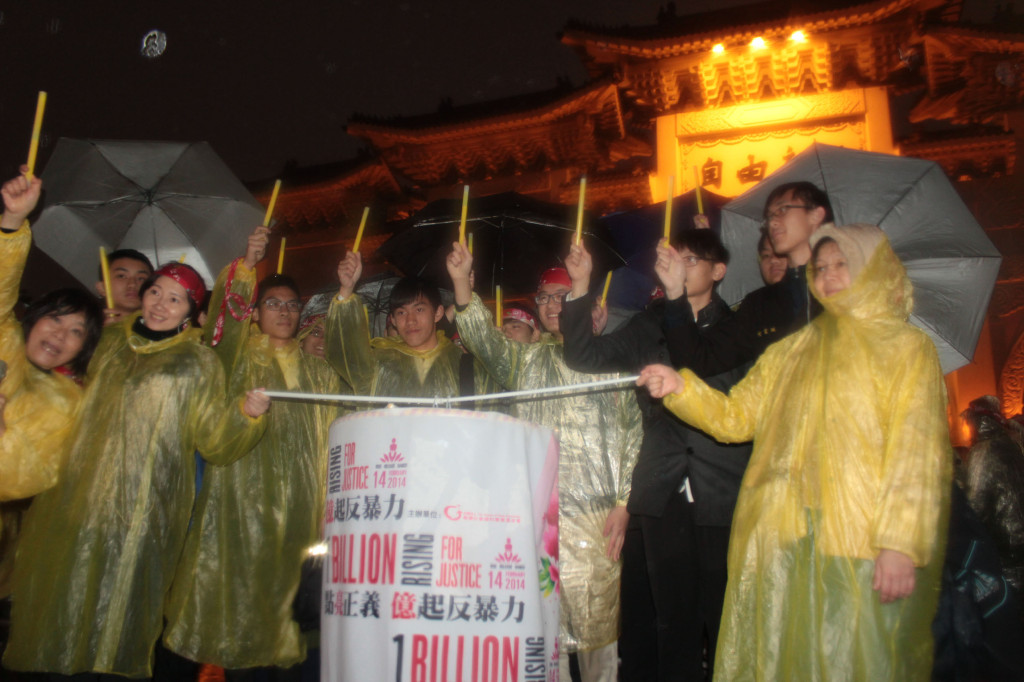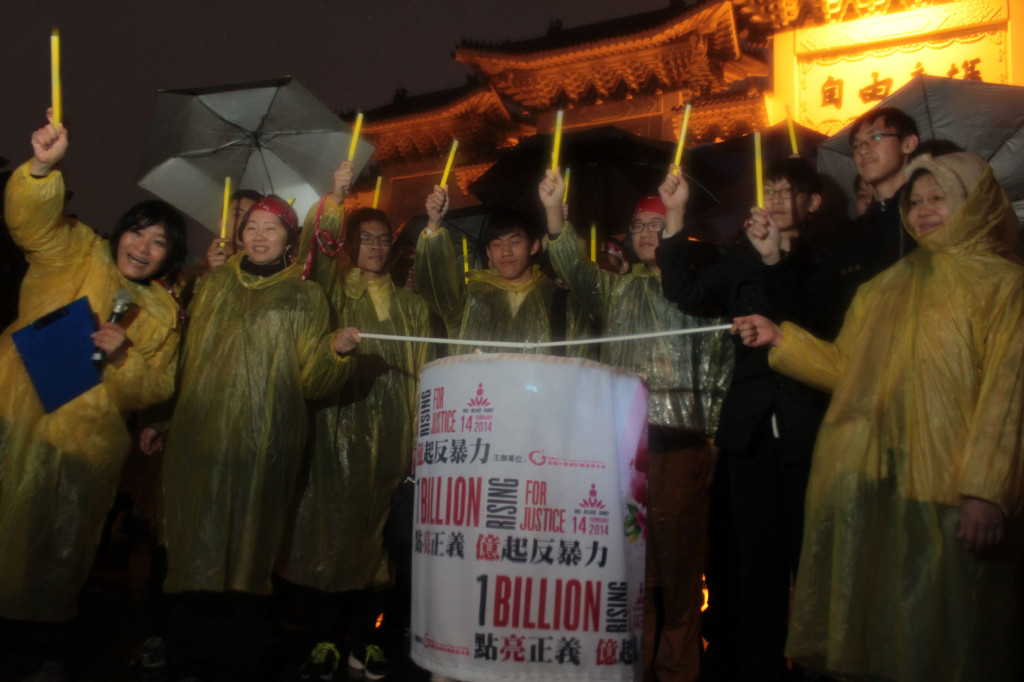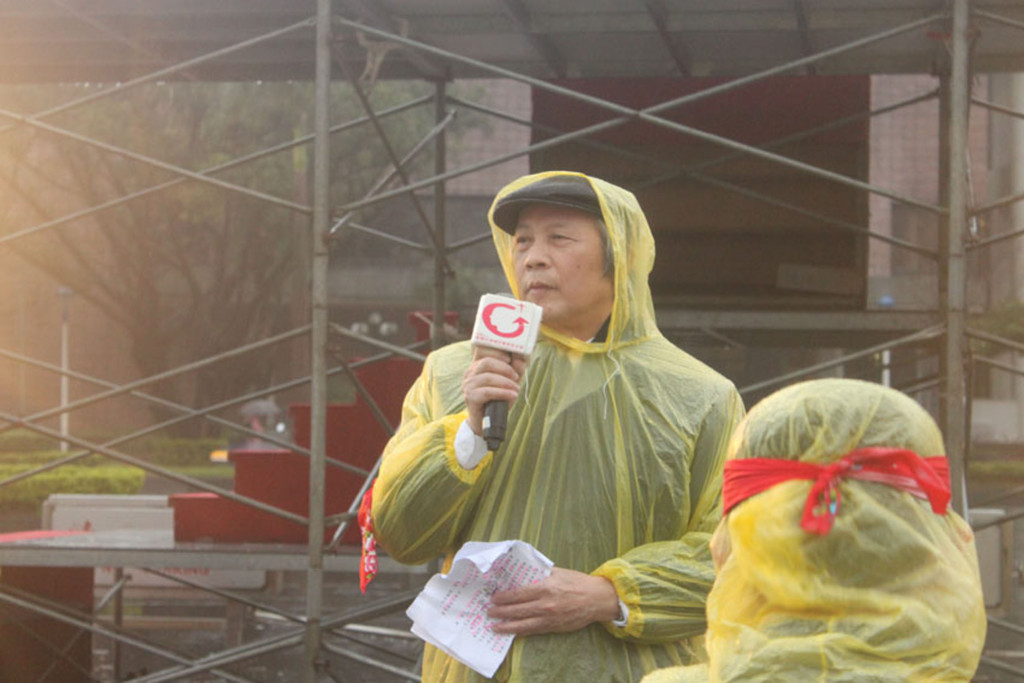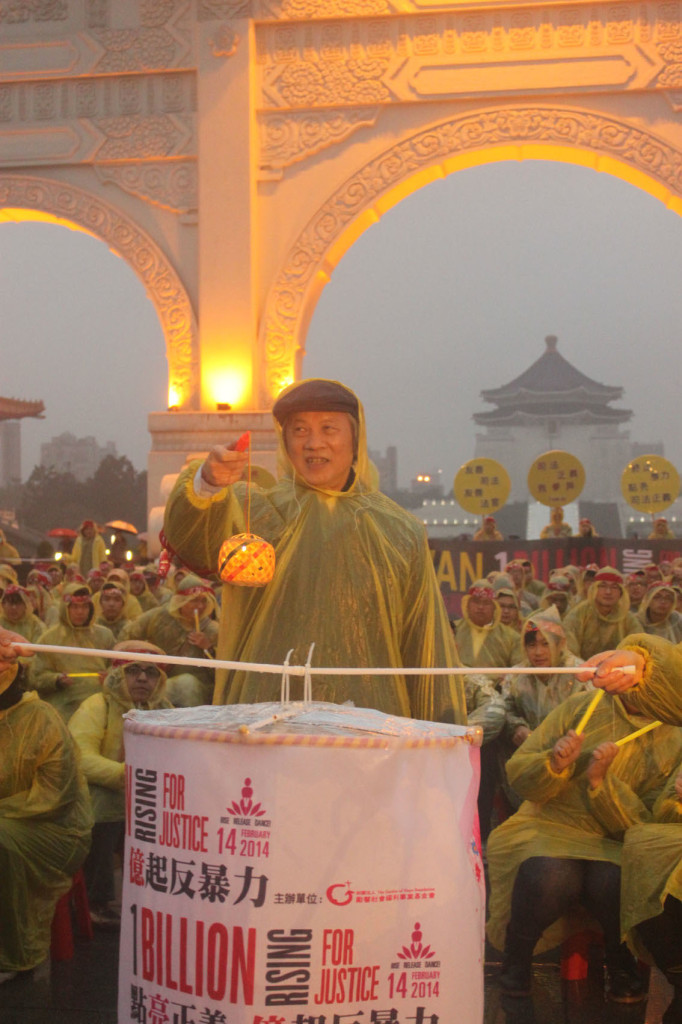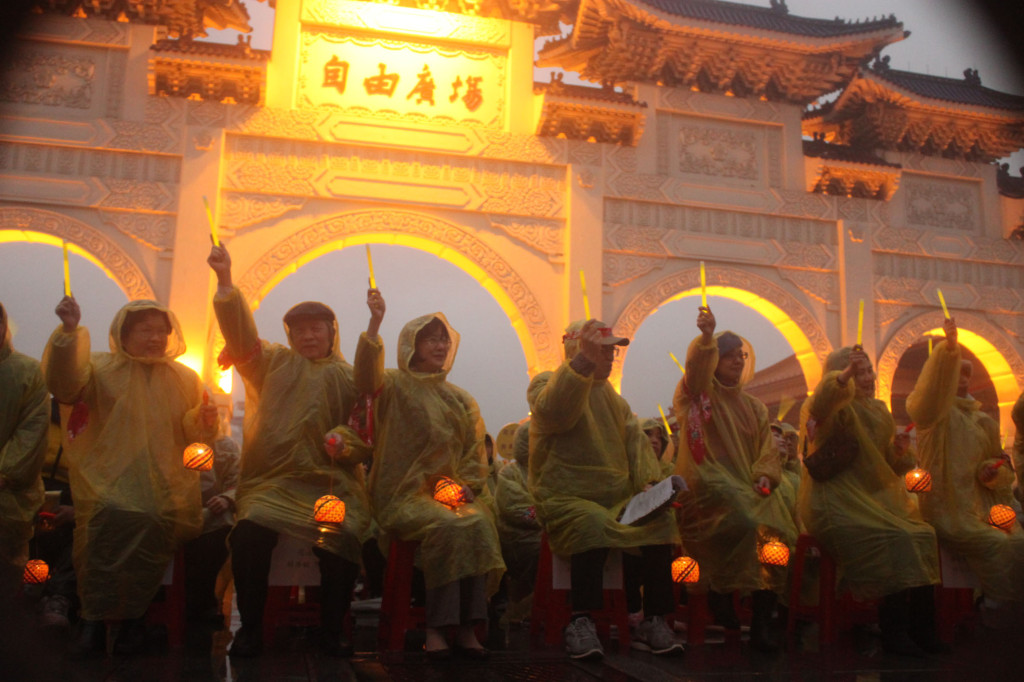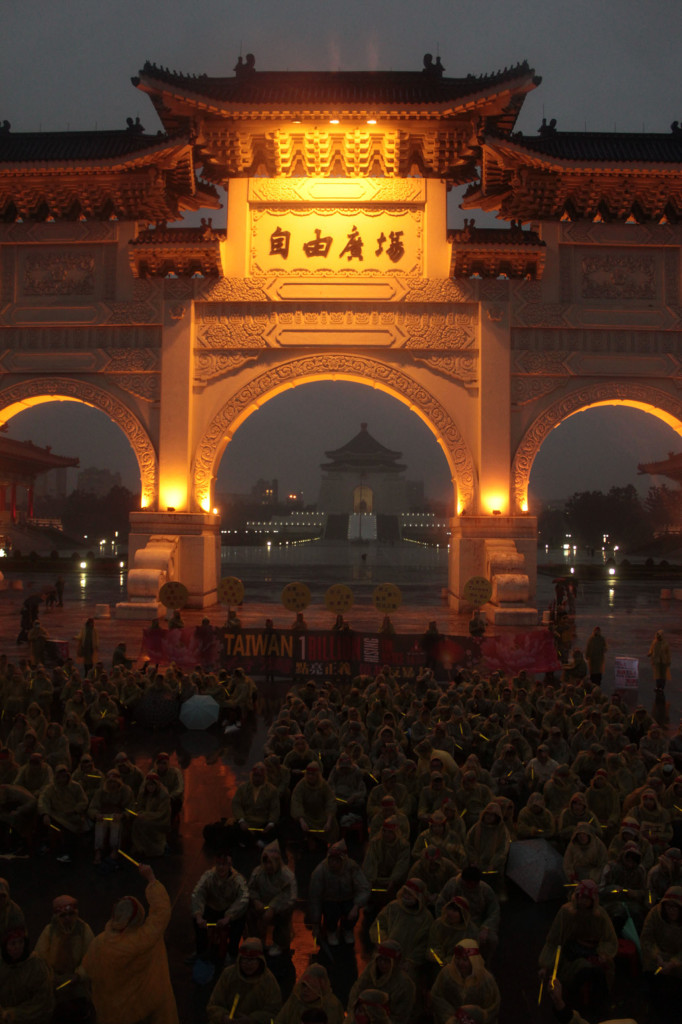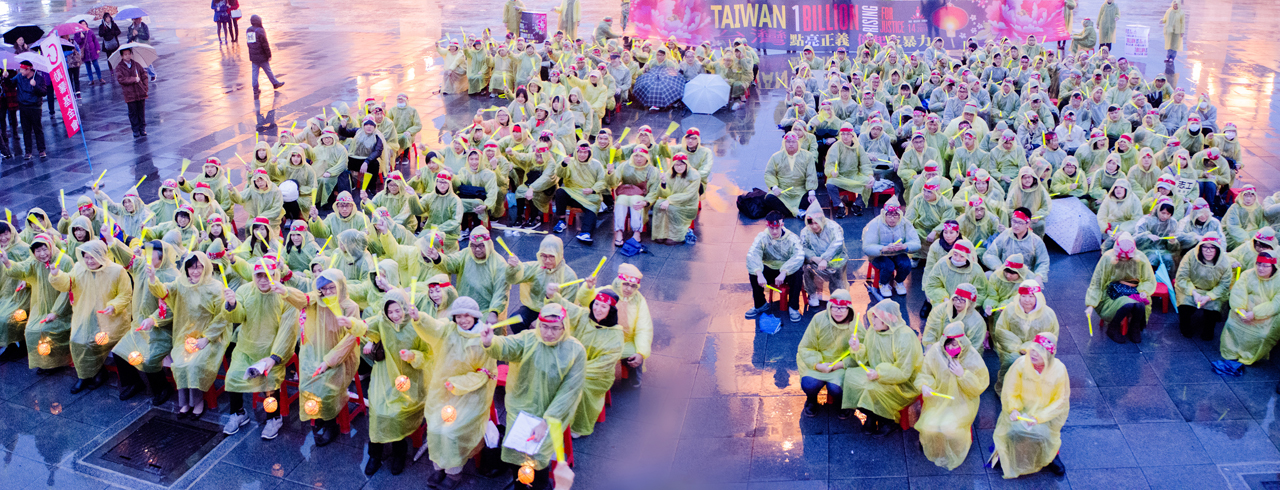
Taiwan shines a light on justice at a rainy but rapturous One Billion Rising event in central Taipei
(Garden of Hope, Taiwan, February 12, 2004)
(Taipei, February 12, 2014) Taiwan’s Garden of Hope Foundation mobilized 300 people for this year’s One Billion Rising headline event outside Freedom Square in central Taipei. The enthusiastic crowd braved the rain to form the words for “justice” (zheng-yi) in huge Chinese characters. Among the risers was Judicial Yuan president Mr. Rai Hau-Min and justice minister Ms. Luo Ying-shay.
This year, V-day fell on the 15th day of the Lunar New Year, which is Lantern Festival in Taiwan. In keeping with the festive spirit, the Garden of Hope gave out lanterns and fluorescent sticks to illuminate the huge human words calling for “justice” for the one billion women worldwide who suffer violence. The key demand of the demonstration this year was for a “gender-friendly justice system”.
In the past, the judicial and law enforcement authorities in Taiwan have been criticized for their archaic views. The Garden of Hope and other women’s groups would frequently castigated “dinosaur judges” for handing down lenient sentences in cases of rape, abuse, harassment, and domestic violence.
But in recent years, the Taiwanese government has made significant progress in key areas, which is why the Garden of Hope invited the Judicial Yuan (Taiwan’s constitutional court) and the Ministry of Justice to join the One Billion Rising Event to “shine a light” on the success stories of gender justice in Taiwan, and highlight positive examples of police, prosecutors, lawyers and judges who are “stars of justice”.
Other risers included Garden of Hope volunteers, activists from Taiwanese NGOs, and high school students. Under a cold and rainy Taipei sky, the risers put on yellow raincoats and held up fluorescent light sticks to show their support for One Billion Rising.
Garden of Hope member of the board Mr. So Hichong thanked everyone for braving the weather. Quoting the Bible passage “blessed are the meek”, Mr. So called on the authorities to treat victims of gender violence in a humble and merciful way.
Mr. Rai Hau-Min said gender violence is not just an issue for women, but for the whole of humanity, and something that the Judicial Yuan takes very seriously. Apart from improving the design of Taiwan’s courts, the Judicial Yuan is also revising regulations to make the legal system “gender-friendly” to protect victims of domestic violence and other gender-related crimes.
Taiwan’s justice minister Ms. Luo Ying-shay said it was difficult for the cold hard legal system to meet all the needs of victims of gender violence, but in partnership with the general public, a “friendlier” justice network was possible. Luo called on everyone to “work happily together in partnership”.
As the sun went down on Wednesday evening, two days before the official V-Day and Taiwan’s Lantern Festival, the risers took out their florescent light sticks and lanterns to illuminate huge human Chinese characters for “justice” on the pavement in front of the famous Freedom Square gate.
The Awakening Foundation’s secretary general Lin Xiuyi said one in three women will suffer violence in her lifetime. In Taiwan, one in four women will suffer intimate partner violence, yet prosecution and sentencing is still lagging behind.
Secretary general of the Taiwan Coalition Against Violence, Zhang Lin, said she hoped the government and civil society would work in partnership for a safe society free of violence. She also called on victims of violence to speak out and be seen.
The event was the highlight of a series of programs from February 7-14 to mark the One Billion Rising campaign in Taiwan. Other Garden of Hope activities are being held in Hsinchu, Taoyuan, Miaoli, Taichung, Tainan Kaohsiung, Pingtung, Hualien, Taitung and other areas of Taiwan.
On Sunday, February 9, migrant worker groups in Taiwan organized a One Billion Rising flash mob dance at Taipei Main Station to call for justice for the domestic workers from the Philippines, Indonesia and other southeast Asian countries who suffer abuse.
